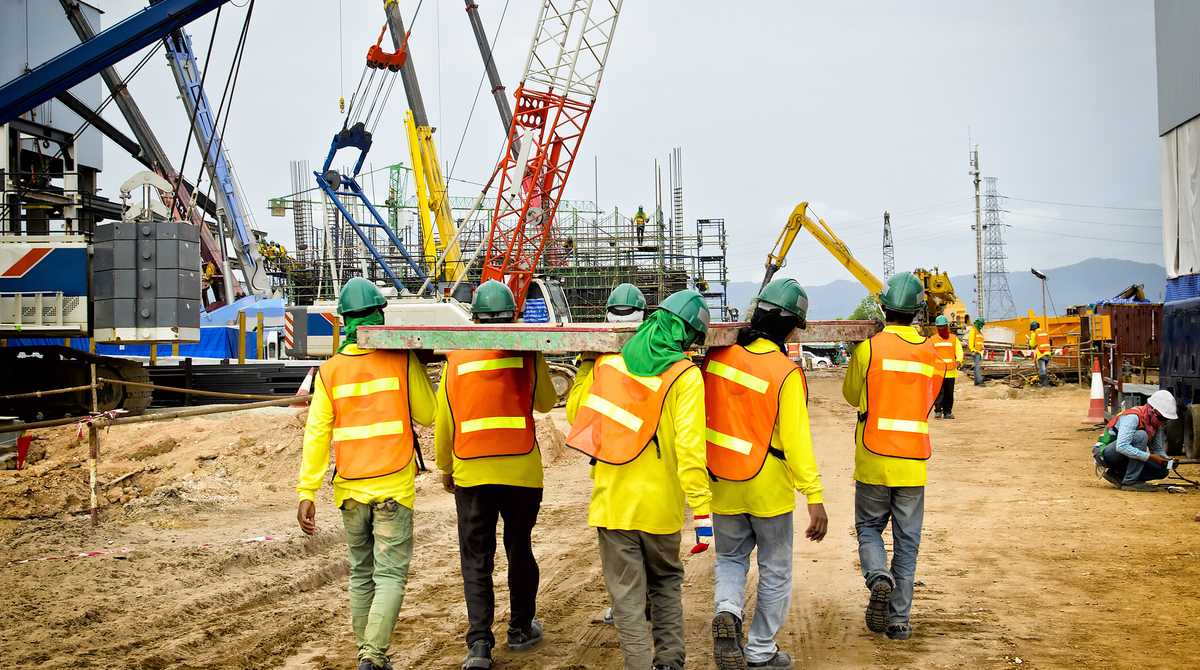
The US construction industry is continuing its recovery from the height of the Covid-19 pandemic, but this recovery is being slowed by a lack of available workers, according to the Associated Builders and Contractors.
CNN Business states that new home construction and improvements are surging, thanks to the lack of inventory in a red-hot housing market and more people are working from home. In an industry already short on workers before the pandemic, construction businesses will need to hire 430,000 workers this year and 1 million more over the next two years in order to keep up, according to Associated Builders and Contractors.
The construction industry shut down for a few months last year during the pandemic, but was quickly deemed essential, allowing paused projects to continue. In that short time, the sector lost more than 1 million workers. The industry has recouped nearly 80% of its workforce since then, but is still down 238,000 workers from pre-pandemic levels as of June, according to the Labor Department.
"We're losing more people than we're bringing into the industry. People made decisions in their lives to leave the region and the industry during the pandemic. It was like putting a puzzle back together to restart where we literally called a timeout. If we wished it was just a bad dream and it would go away and everybody would just come back - that's not going to happen."
Owner of Schimenti Construction Company | Matthew Schimenti
Schimenti Construction, which primarily works on commercial projects, has 20 open positions across all skill levels. They've even hired two internal recruiters just to look for talent. Commercial construction remained largely flat during the pandemic, but it is expected to get better as the US economy returns to pre-pandemic norms.
Some contractors have had to raise wages to remain competitive. Some have had to raise their entry level wages by 40%. That's on top of rising costs of materials including steel and wood. These costs end up being passed down to the customer eventually.
"I was offering $18-$22 an hour and I got no applications. I increased it to $23 and I got none. I increased it to $25 and they're starting to trickle in now. It was a dramatic increase, but in order to grow the business, I need technicians."
Owner of New York Solar Maintenance | Matthew Messer
Many industries are facing labor shortages, but unlike restaurants and hospitality, construction pays nearly double the average hourly rate. A restaurant or hotel worker can make $18.23 per hour on average compared to $32.86 an hour for a construction worker, according to the Bureau of Labor Statistics.
Schools used to offer shop classes but now there aren't many that do that. Those classes were often a student's first introduction to a power tool or tape measure and introduced many to construction work. The lack of these classes has made it harder for the industry to attract and recruit young talent. That, plus an aging construction workforce has created a hole in employment. The average age of construction workers now is 43.
Michael Bellman, President and CEO of Associated Builders and Contractors stated that they want to go out to every area where they can attract top talent. Once they get them into the industry, they educate and upskill them.
The way to keep these new workers is to teach them new skills at no additional cost to workers. In the last decade, the average monthly turnover rate in construction has been 5.2%, compared to 3.6% for all industries, according to the Bureau of Labor Statistics. Until workforce numbers meet demand, companies will increasingly look to technology to replace open positions.
"The industry is using technology and innovation to basically handle this disruption with regards to the labor shortage. A lot of use of drones, robotics, and additive manufacturing. That, though, creates new career opportunities in those innovation and technology spaces. And that's very attractive to the younger generation."
President and CEO of Associated Builders and Contractors | Michael Bellman
According to Illinois News Now, the construction industry continues to struggle with filling positions. Most of these hard-to-fill positions are:
- Foreman
- Electrician
- Carpenter
- Superintendent
- Safety officer
- Sheet metalworker
- Surveyor
The Master Builders of Iowa has a full-time workforce manager to connect schools directly with employers. The organization invested in a virtual reality program that enables them to go into a classroom and put headsets on 25 different students to walk through different jobs.
Editor's note: This is, indeed, a confusing time for the construction industry. DataBid is working tirelessly to report and distill the news that can help you and your company make the right decisions and keep you up to date on the constant changes as they are made. We hope our coverage brings some clarity amid all the confusion.
Posted by Judy Lamelza





